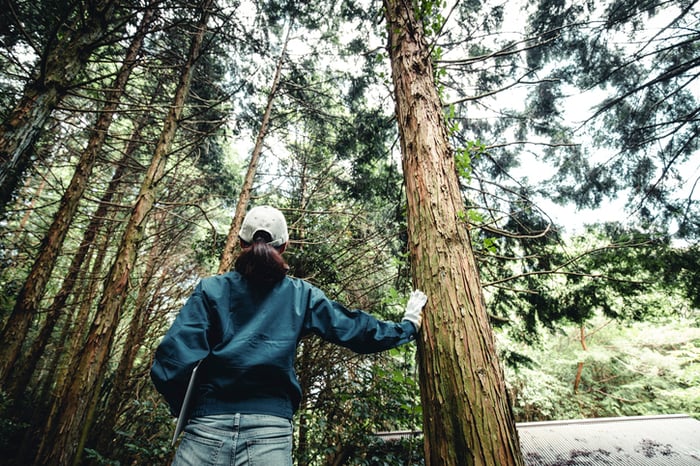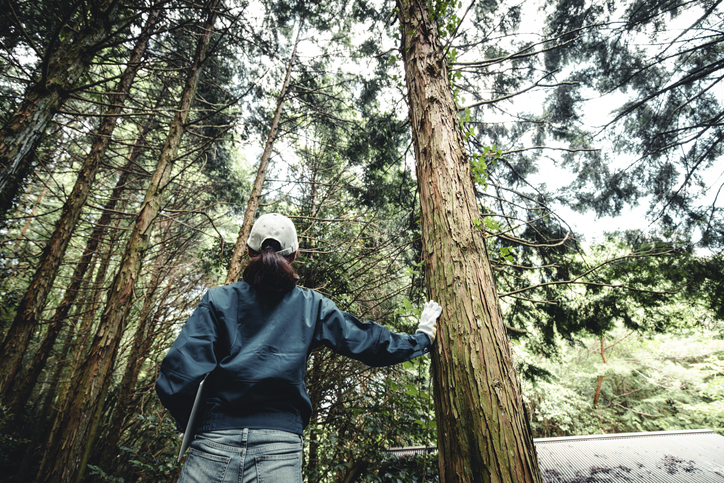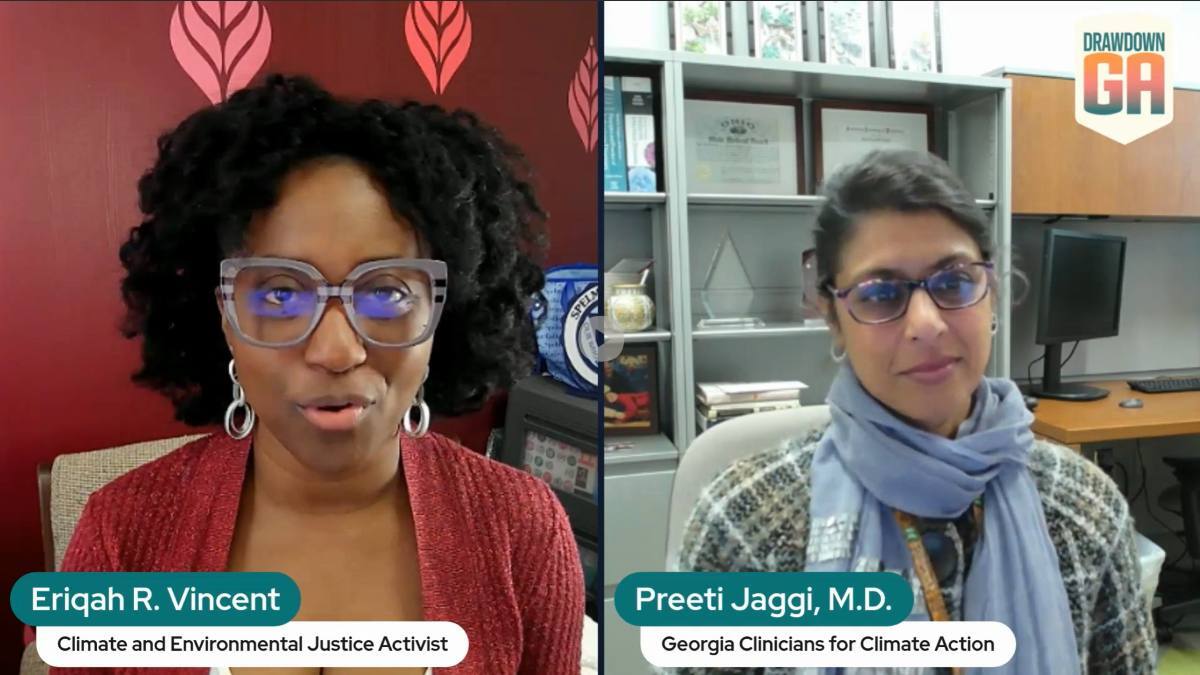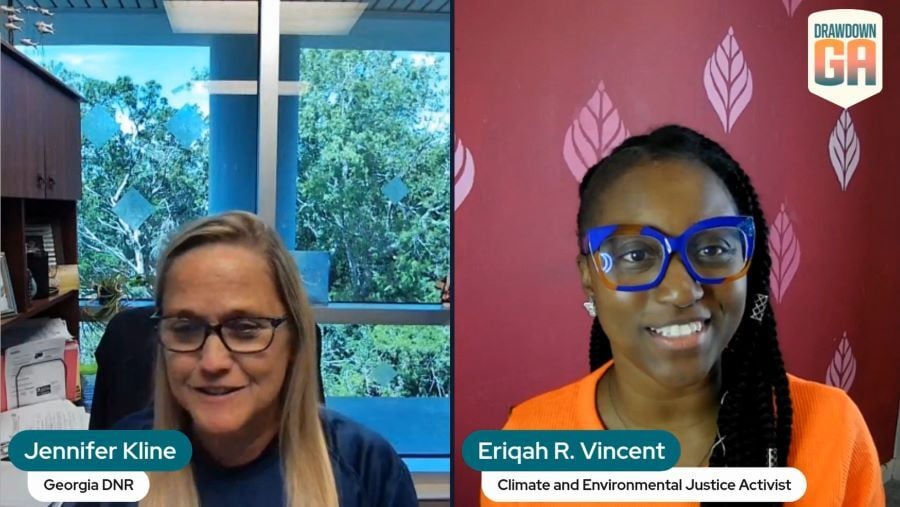Georgia is the number one forestry state in the country. Our forestry industry not only plays a vital role in the state’s economy, but Georgia’s 22 million acres of forests are also a key climate solution for our state because they sequester over 30 million metric tons of carbon dioxide each year.
Restoring and protecting temperate-climate forests has many benefits, including carbon sequestration from trees, soil and other vegetation. If we can increase forest cover in Georgia by just 3.5%, we could reduce emissions in our state by one megaton, or one million metric tons.
.jpg?width=700&name=XX-Georgia%20Forests%20(Old%20Image).jpg)
Protecting and expanding forestland in Georgia also has co-benefits that go beyond carbon, such as:
-
Positive impacts on our environment, including improved air quality, improved water quality, and increased wildlife habitats and biodiversity.
-
This improved air and water quality can benefit public health.
-
Forests create jobs in forest protection and management, and offer low-cost recreational opportunities that can bring tourism-related jobs.
Preserving and expanding Georgia forests offers a wealth of benefits to our state and our climate. In order to achieve our climate goals, it’s essential to understand and support the goals of forest landowners.
Georgia Forest Landowners Are Increasingly Female

As the demographics of forest landowners shift, we see more women becoming primary forest landowners. Already, 22% of forestland in Georgia belongs to female forest landowners, and the percentage is rising each year. But are their motivations for owning and managing the land aligned with those of their predecessors? Researchers are working to understand more about the motivations of female forest landowners, and what tools they may need to keep forests as forests. This understanding is critical for ensuring the continuation of forest-based environmental services, including carbon storage and sequestration.
With the support of grants from the Bradley/Murphy Forestry and Natural Resources Extension Trust and the USDA National Institute of Food and Agriculture, researchers at the University of Georgia Warnell School of Forestry and Natural Resources recently conducted a survey to better understand the management objectives of female forest landowners, and how they manage their land.
Women in Forestry: Three Key Motivations and Priorities
The purpose of the study done by the researchers at Warnell was to identify the similarities and differences among the female forest landowner types, not to compare them to male forest landowner management motivations; however, the findings could support and also contradict conclusions from other studies.
The first type of female forest landowner makes her land management decisions based on her attachment to the forestland. These women find managing their forestland for wildlife and conservation important and are not likely to sell their forestland. Female forest landowners who identified as Type 1 are unique in that part of their identity comes from owning forestland and they find living on or near their forestland important. This may support other studies indicating that women often treat their forestland as a part of their home and that landowners in the Southeast tend to live near their land.
The second type of female forest landowner is most motivated by financial opportunities of forestland management, such as timber production. They also find current outreach opportunities to women in forestry insufficient. Type 2 female forest landowners focus mainly on income generation, which varies from another study that indicates that women landowners often do not participate in forest management activities.
The third type of female forest landowner in Georgia prioritizes managing her forestland for improving the wildlife habitat. These landowners largely manage their forestland for maintaining and improving wildlife habitat. Interestingly, women who identify with this type are the least likely of the three to feel their gender has restricted them forestland management.
Taking Action to Support Georgia Women in Forestry
Regardless of the management approach, female forest landowners are attached to their forestland and want to manage it for future generations. Understanding these management motivations is a vital start for creating relevant educational and outreach opportunities for them and may connect more women with the resources they need. It may also encourage more responsible forestland stewardship leading to continued, multiple benefits across the state, such as roundwood production, clean water, biodiversity protection, recreation, and of course, carbon storage and sequestration.
Stay on top of all the news about Georgia forests and all of the Drawdown Georgia climate solutions by subscribing to our bi-weekly Georgia Climate Digest now.
Authors:
Since 2013, Puneet Dwivedi has been a faculty member at the University of Georgia Warnell School of Forestry and Natural Resources, specializing in sustainability sciences. He is also the Chief Executive Officer and Owner of Eco-Intelligence (www.eco-intel.us), a consulting firm committed to providing smart and equitable solutions for ensuring the sustainability of environmental resources worldwide.
Jacqueline Miner is a graduate research assistant at the University of Georgia Warnell School of Forestry and Natural Resources. Her research focuses on identifying female forest landowners opportunities for forestland management and understanding their management motivations.






.jpg)

